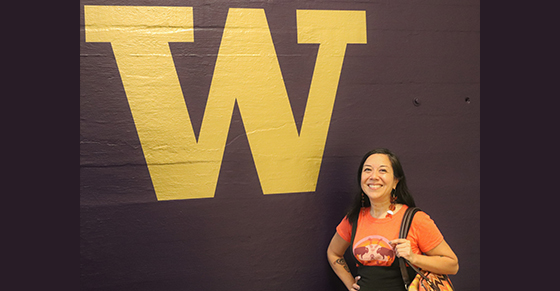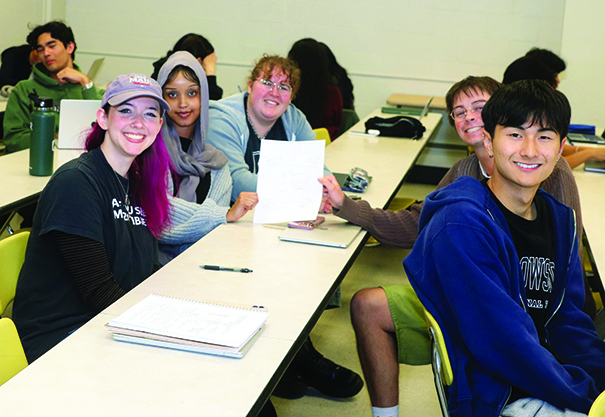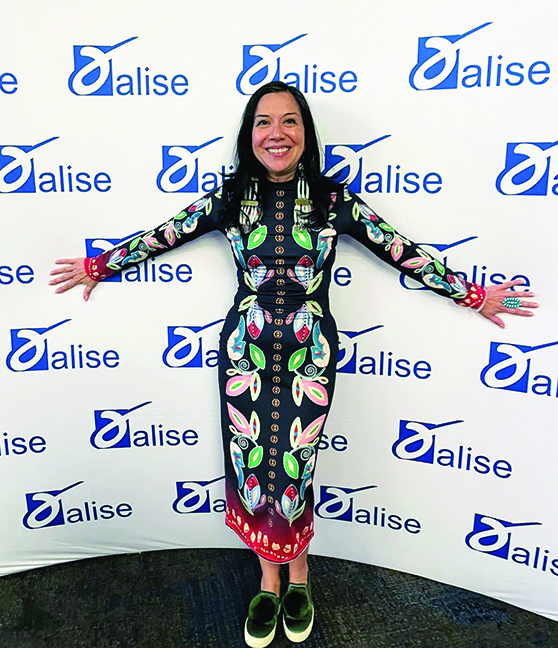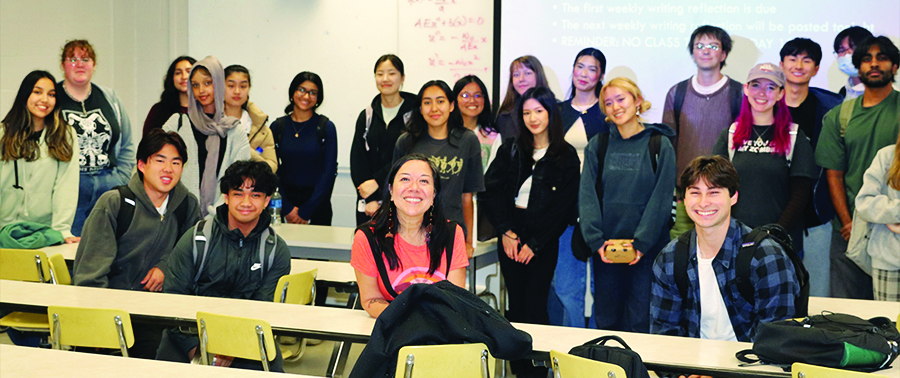
By Micheal Rios, Tulalip News
At the cross-section of academia and culturally inclusive education, prevailing winds of change are sweeping though newly constructed learning centers and century’s old college campuses across the nation. Generated by Native American culture bearers focused on increasing representation and breaking down barriers by actively seeking to become mentors, school administrators and college professors. These individuals are powered by a fearless determination seven generations in the making.
The Tulalip Tribes has produced several of these illustrious education change makers; from Dr. Stephanie Fryberg and Dr. Lena Hammons to Early Learning Academy director Sheryl Fryberg and Quil Ceda Elementary vice principal Chelsea Craig. Soon, Tessa Campbell will join the ranks of those marvelous matriarchs. Proving yet again that educational pursuits, even at the highest of levels, aren’t just realistic dreams, but are attainable goals for our Tulalip people.

“The main reason I am in the Ph.D. program is because the University of Washington Information School supports Indigenous Knowledge and Indigenous Systems of Knowledge research,” explained Tessa. “There are currently three Native faculty and three Native Ph.D. students. I am pursuing my doctorate degree so I can eventually teach. I also want to be a role model for not only younger generations but others as well. It is important to see Native people in academia. Having representation of Native faculty and students is so important to see that if other Native people can survive and thrive in these programs then so can they!
“Personally, for me, education has been empowering,” she added. “It hasn’t been an easy journey though. My Ph.D. experience is so drastically different than my undergraduate experience. When I was an undergraduate student 20 years ago, there was a significant lack of Native American representation at the University of Washington. During my undergraduate years, I never saw Native American students, faculty or staff. I even took an American Indian Studies class, and it was taught by a non-Native professor. During those years, I felt unsafe and unsupported, so I remained invisible and silent.”
The now 47-year-old Tessa is anything but invisible and silent. With an extensive wardrobe of vibrant colors and bold Native designs that is often accessorized with stunning beaded earrings or cedar woven jewelry, she proclaims herself a proud Tulalip and Tlingit culture bearer in any space she occupies. A classroom in UW’s Moore Hall is one such space. That’s where her articulate voice speaks truth to power every Tuesday and Thursday afternoon as she seeks to indigenize education.

Only months away from earning her doctorate degree from the University of Washington, Tessa is working towards completing her Ph.D. program by teaching an exclusive course within UW’s school of Informatics. INFO 353 Indigenous Ways of Knowing in the Digital World is the course title.
In her pursuit to become Dr. Campbell, Tessa is indigenizing education not only by recruiting and supporting Native American educators but also integrating Native perspectives, histories, and teaching methods into her academic curriculum.
“The curriculum was originally created and developed by Dr. Sandra Littletree (Navajo/Easter Shoshone), which I have kept the foundation but have integrated material about the Tulalip Tribes into,” explained Tessa after allowing SeeYahtSub staff to attend one of her class sessions. “I asked and was granted permission from our Tulalip Board of Directors to teach about Tulalip history and culture this quarter. I believe that all tribes should have control of their knowledge and information and know where it is being disseminated.
“It’s been great having guest speakers from Tulalip, such as Aaron Jones, Ty Juvinel and Dave Sienko, come to UW this quarter and speak to the students,” she continued. “The main takeaways I want students to learn is that all tribes are not a monolith. They are so unique and diverse in their languages, cultures and histories. Since most students in the class have no previous exposure to Native American history, I want them to learn about Treaty Rights and tribal sovereignty.”
That vast majority of her 30 students are international or 1st generation American. Descending from countries like China, Thailand, India, Mexico, Armenia, Indonesia and the Philippines, Tessa’s class is one of the most diverse on the entire Seattle campus. Add-in the meticulously curated course content, various guest speakers, and the unique individual teaching and that’s a formula resulting in cross-cultural learning at its finest.

UW student Joanna Pena-Rodriguez said she was excited to learn from a fellow Indigenous person, especially one that is an enrolled Tulalip Tribes member. “I want to learn more about how Indigenous people have connections to the land and use storytelling as a way to preserve traditional knowledge for future generations,” shared the UW 4th year whose parents are both from Jalisco, Mexico. “I’m also interested in learning about building community and tying these concepts back into my own Mexican roots and traditions.”
The movement to indigenize education reflects a broader societal shift towards inclusivity and respect for diversity. As more Native Americans enter the field of education, they are redefining what it means to teach and learn in America. This effort not only empowers Native communities but enriches the educational landscape for all, creating opportunities for students to engage with the histories and cultures that shape our world.
All those Native educators working tirelessly to indigenize these historically marginalized spaces are actively dismantling colonial narratives while promoting tribal sovereignty and self-governance. For Tessa, the macro is just as important as the micro.
“Academia and education have been harmful and traumatic spaces for Native people, so creating space for ourselves and sharing our ideas and knowledge with others helps us feel stronger,” concluded Tessa. “These actions help us feel safer, building community, mentoring, uplifting and supporting each other. Any educational pursuit is empowering whether it is a training certificate program, apprenticeship program, associate’s degree, bachelor’s or whatever. We can all integrate these programs and indigenize them and bring that knowledge back to Tulalip to build a stronger and healthier community.”
What a breath of fresh air those prevailing winds of change are.